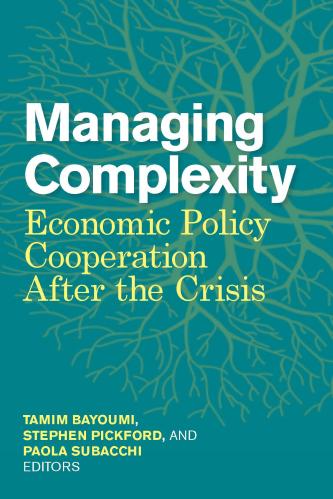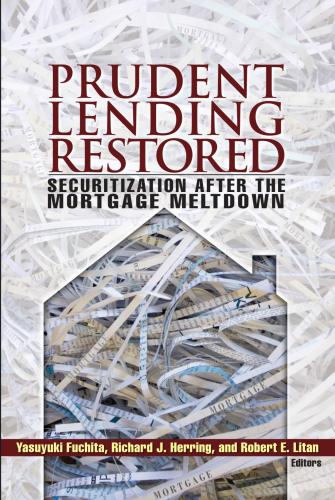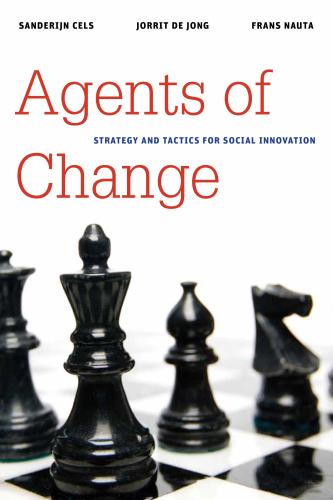Studies in this week’s Hutchins Roundup find that the current U.S. macro-prudential regime likely would not have prevented the financial crisis, pay-for-performance is less effective in the presence of prosocial motivation, and more.
Want to receive the Hutchins Roundup as an email? Sign up here to get it in your inbox every Thursday.
The current US macro-prudential regime likely would not have prevented the financial crisis
Since the global financial crisis, macro-prudential regulation—regulation aimed at ensuring the stability of the financial system as a whole— has garnered increased attention. David Aikman of the Bank of England and coauthors argue that a macro-prudential regime with a suitably strong mandate and the power to adjust financial system leverage and limit household sector indebtedness could have significantly reduced the economic fallout from the collapse of the real estate bubble in the U.S. However, the U.S. Financial Stability Oversight Committee (FSOC)—set up as part of Dodd-Frank in 2010 with a mandate to identify and respond to risks to U.S. financial stability—does not fit the bill, the authors say. The FSOC has no macro-prudential levers under its direct control, and not all of its 10 voting members come from existing regulators with mandates to protect financial stability. The U.K.’s Financial Policy Committee, by contrast, has more powers and stronger accountability, and thus would have had a better chance to respond to pre-crisis fragilities.
Pay-for-performance is less effective in the presence of prosocial motivation
Daniel Jones of the University of Pittsburgh, Mirco Tonin of the Free University of Bozen-Bolzano, and Michael Vlassopoulos of the University of Southampton conducted an experiment to explore how pay-for-performance works in sectors where prosocial motivation among employees is particularly important, like education and healthcare. The experiment required participants to perform a word formation task while the authors recorded both the quantity and complexity, measured by a point score, of words. Participants who received a fixed payment per word produced more, but less complex, words than participants paid a flat rate for the overall task. When given the choice, high ability workers self-selected into the piece rate compensation scheme. Both of these effects died out when the authors introduced prosocial motivation to the game by promising to make a charitable contribution based on the point score of words. The study suggests that performance pay is less successful in increasing effort on the incentivized dimension when workers are also motivated by benefits to society as a whole, the authors argue. Furthermore, in the presence of a prosocial motivation, performance pay does not seem to attract higher quality workers in terms of ability or motivation.
Early warning system could have predicted 75 percent of fiscal crises between 2007 and 2015
Svetlana Cerovic, Kerstin Gerling, Andrew Hodge, and Paulo Medas of the International Monetary Fund create an early warning system model (EWS) to predict potential financial crises. The authors define a financial crisis as period of heightened budgetary distress, resulting in the sovereign taking exceptional measures such as defaulting on loans, printing money to finance the budget, or seeking large-scale financial support from the IMF. The authors analyze macro, fiscal, and non-fiscal indicators in 188 countries, and identify specific indicators that can forecast a financial panic. They show that, in advanced and emerging market economies, large output or credit gaps, current account deficits, and a rise in public expenditures increase the probability that a crisis will occur in 1 to2 years. In low-income countries, global variables that include decreases in foreign aid and foreign direct investment, changes in food prices, and global economic growth, predict future crises. The authors’ EWS model accurately predicts 75 percent of the crises between 2007 and 2015. Countries can reduce the likelihood of a fiscal crisis by practicing prudent fiscal policies and building buffers to potential shocks, the authors say.
Chart of the week: A tighter labor market has brought more prime-age workers into the US labor force

Quote of the week:
“[T]he acceleration of globalization and technological progress in the past 30 or so years has radically changed the world we live in. While millions of people have been lifted out of extreme poverty, wealth and income inequality has soared, and countries have become more vulnerable to foreign spillovers, and to international crises more generally. Many people feel that not all countries are abiding by the same rules and standards, and that the open market has weakened our democratic control. These concerns are real and need to be taken seriously. But too often the solutions offered to today’s global challenges are simplistic and short-sighted. For example, raising tariffs and withdrawing within national borders will deprive people of the economic benefits of trade and integration. According to ECB staff estimates, in an hypothetical scenario where the US raises tariffs on all imports of goods by 10 percentage points, and its trading partners impose the equivalent on US exports, US GDP could be up to 2½ percent lower than in the baseline in the first year alone,” says Benoît Cœuré, member of Executive Board of the European Central Bank.
“There is therefore a need for sustainable and effective solutions to today’s challenges. But here lies a dilemma: although globalization has increased the need for stronger and better domestic policies, it has also progressively reduced the range and effectiveness of policy tools available to individual countries to respond to the challenges it creates. For instance, globalization makes it harder for policymakers to regulate and supervise financial markets and prevent recurrent crises. And by making the tax base footloose, it weakens governments’ ability to support people’s incomes and retrain those displaced by global competition. More and not less international cooperation must therefore be part of the solution.”
The Brookings Institution is committed to quality, independence, and impact.
We are supported by a diverse array of funders. In line with our values and policies, each Brookings publication represents the sole views of its author(s).










Commentary
Hutchins Roundup: Macro-prudential regimes, pay-for-performance, and more
August 9, 2018